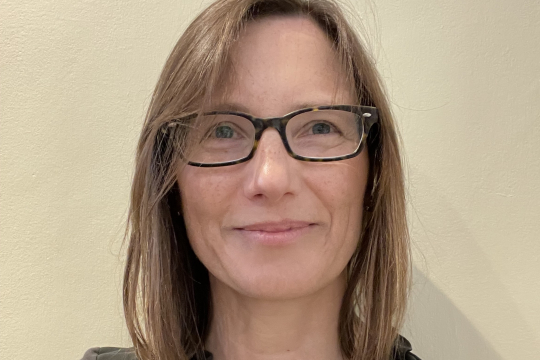Elizabeth Robinson is the Director of the prestigious Grantham Research Institute on Climate Change and the Environment, at the London School of Economics. EfD is proud to present her as one of the keynote speakers at EfD’s Annual Meeting in November 2021.
Elizabeth Robinson has over twenty-five years of experience in research on policies to reduce climate change emissions, protect the environment, and improve the livelihoods of vulnerable communities. She has degrees from Oxford and Stanford and has lived and worked in Tanzania and Ghana. Elizabeth Robinson is well-known to many within the EfD network and, among others, contributed to establishing EfD’s center in Tanzania and the forestry collaborative program.
Tell me about your current work!
Just as in my previous job at the University of Reading, the focus is on climate change and the environment and specifically the links between climate change, food security, and health.
Climatic stressors, such as heat and drought, affect people’s health in many ways, whether directly or through access to food and capacity to work.
Of course in my current role, I spend less time than before doing research myself, that’s the price you have to pay when you also have an administrative role.
Why Grantham?
It has such a tremendous reputation for its work on climate change. And my interests align well with those of Grantham. It was impossible to say no when this chance came up. If there is a time one should devote your career to this, it’s now.
I am excited to work with people who are so dedicated to achieving “net-zero”.
Much of our focus on a just transition, moving rapidly towards a low carbon society without increasing inequality is also so important. Even in England with the issue of whether or not to open a new coal mine in Cumbria, we have to find solutions that are acceptable for all.
How do you achieve a just transition?
You often hear people talk about climate policies as a negative thing, a cost. But it is important to highlight win-win situations. We can demonstrate the positive effects of a transition to a low-carbon economy: How reducing air pollution increases people’s quality of life and health, how we can reduce inequalities, reduce the pressure on the environment, tackle poverty, and so on.
What are the most interesting aspects of your work?
Working closely with people outside of academia, such as policymakers and NGOs. I also really enjoy working with my colleagues at the EfD centers in the Global South.
The most exciting part is that I really believe that environmental economists can make a difference when we work in the policy arena.
What are you most proud of in your career?
That’s impossible to say. I have been privileged to work with so many interesting people. It was for instance fantastic to work with EfD Tanzania. My six months with EfD China was also a wonderful experience. Many of my best moments were made possible thanks to EfD, an organization I have been linked to for almost 20 years now.
What will you talk about in your keynote presentation?
I will talk about the links between climate change, food security, and health. We now have really good data on climate and weather, crop yields, livelihoods, health outcomes, and are able to attribute aspects of child health, for example, to weather and climate anomalies.
What does EfD’s Annual Meeting mean to you?
I have been to many of them and they are always great fun, sharing all the fantastic work that is done at all the centers. It’s nice to hear the presentations by the authors and the discussions rather than just reading the papers. You experience the passion people have for their work. That part is still there even with the online meetings.
But of course, we all miss meeting in person – the coffee break chats, the serendipitous meetings that can lead to interesting collaborations.
EfD has a much bigger voice than its budget would suggest. It’s a wonderful network that achieves great things.
Facts
The Grantham Research Institute on Climate Change and the Environment was established by the London School of Economics and Political Science in 2008 to create a world-leading center for policy-relevant research and training on climate change and the environment, bringing together international expertise on economics, finance, geography, the environment, international development, and political economy.
By: Petra Hansson
